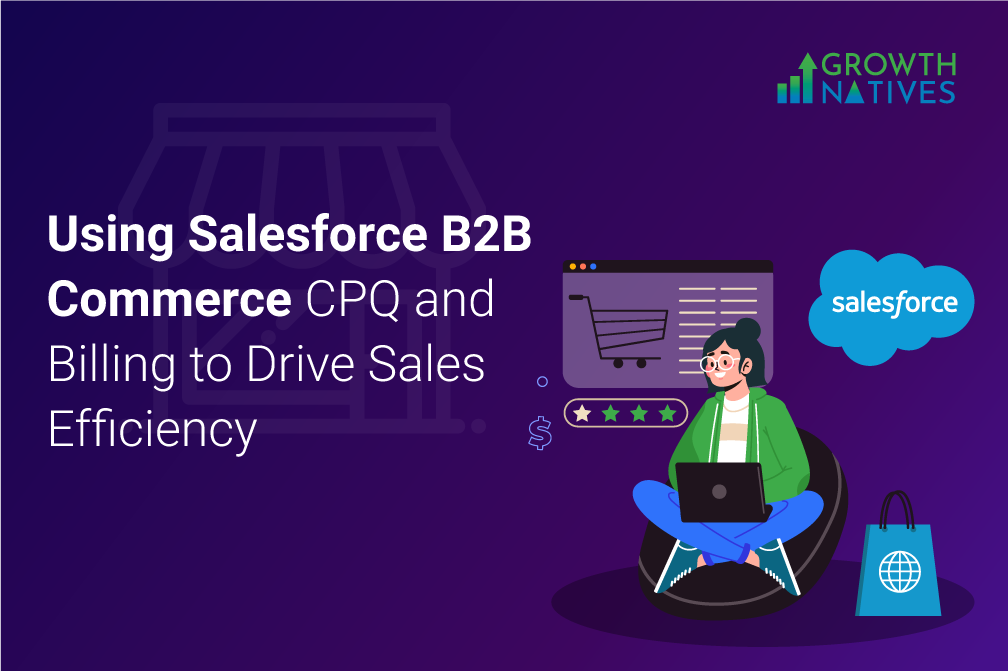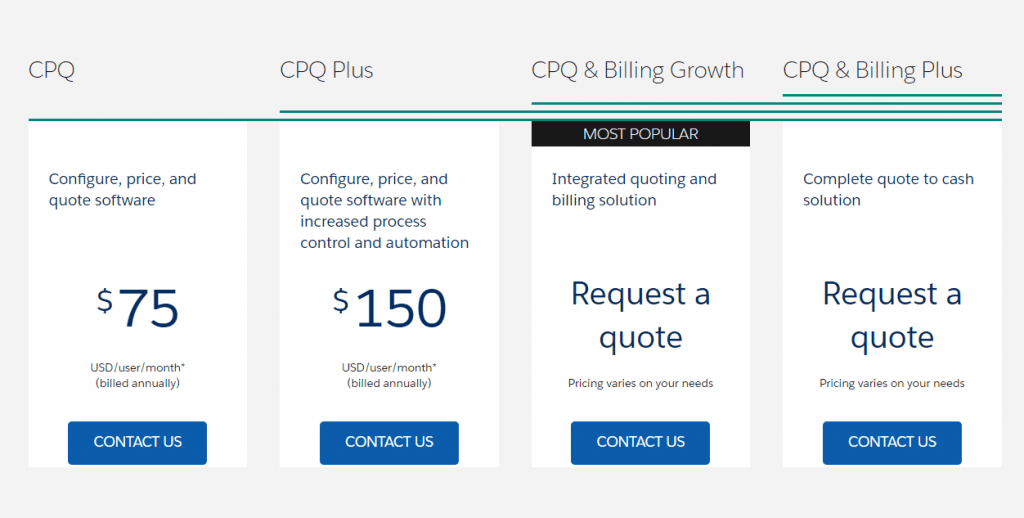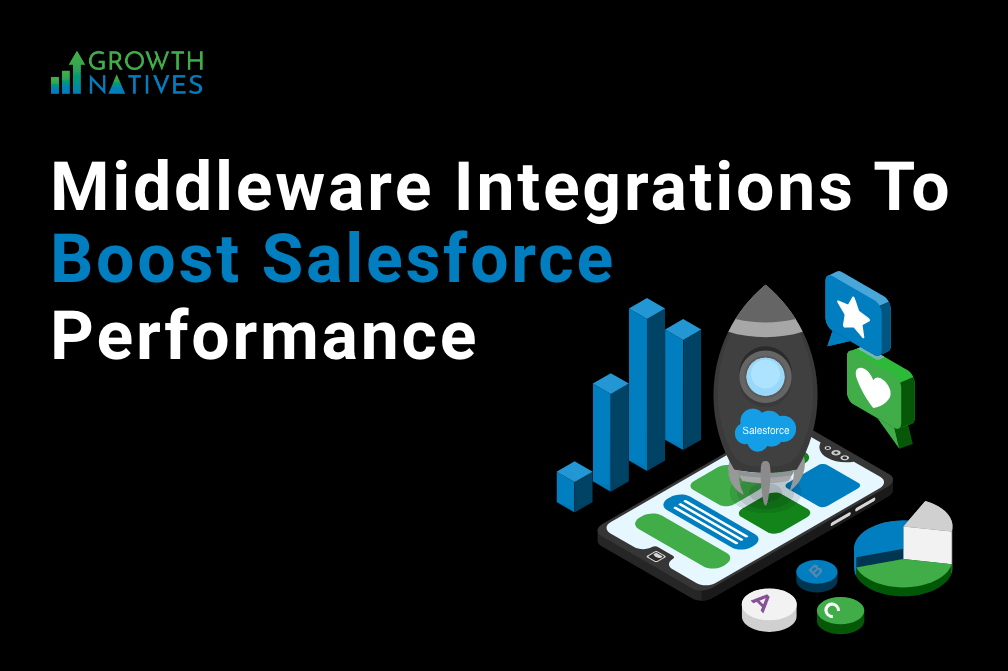
Using Salesforce B2B Commerce CPQ and Billing to Drive Sales Efficiency
By Sakshi Arora
Mar 17, 20217 min read
Imagine waking up to an email from an old client who seems to be irate because he was charged more for a product or services. You spring into action and investigate what happened and why! Probably you didn’t have everything sorted with Salesforce CPQ and Billing. But we will get around it very soon.
It turns out that a member of your sales team made a small mistake when manually quoting the price, and now you are on the verge of salvaging the relationship with an important client.
When managing a complex operation with multiple sales reps and complex pricing structures implementing a B2B Commerce Salesforce CPQ (Configure, Price & Quote) and Billing and integrating it with your Billing system is a must-have to avoid these situations. As more and more transactions are happening in B2B eCommerce mode organizations need access to improvise their B2B commerce solutions to manage their sales processes.
The Market Guide for Salesforce CPQ and Billing Application Suites by Gartner suggests that the CPQ sales market is set to grow at a compounded annual growth rate of 20% annually. Accenture also seems to be on the same page when they reported 83% of sales representatives used a CPQ and billing solution this year.
But even as the sales channels conform to the uniformity swiftly, there are challenges along the way. What challenges? Here a few:
- Custom-made quotes
- Client-specific pricing
- Discounts based on usage of Ecommerce platforms
Providing solutions at customized pricing and quoting products based on client interest is a feature that is catching up quickly. The emergence of bespoke services adds to a client’s expectations, but the truth is, very few B2B CRM solutions incorporate this feature in their tool.
As a result of using Salesforce CPQ and Billing, the sales representatives have to pay extra for third party solutions that may or may not impart the functionality in a way they expect.
Enter Salesforce CPQ!
What makes Salesforce so sweet to use is that those mentioned above can be solved easily with Salesforce CPQ and Billing, and it comes in-built into the Salesforce billing system.

What makes Salesforce so sweet to use is that those mentioned above can be solved easily with Salesforce CPQ and Billing, and it comes in-built into the Salesforce billing system.
The functionality makes Salesforce the perfect option for CPQ and billing, whether you are a large enterprise or a small business. You do not have to spend extra dollars to get access to customized CPQ features.
A lot of companies have already adopted this solution, and Salesforce has established itself as a leading solution provider in the CRM and B2B commerce segment.
With that being said, it is time to explore how you can use Salesforce CPQ to give your sales team the much-needed edge in the world of hyper-competitive B2B commerce.
For Optimizing Your Product Catalog
Perhaps one of the most prominent features of the Salesforce CPQ platform is configuring product catalogs in an optimum manner. Its sales representatives can easily take care of complex catalogs and put forth the most for the customer to see.
Creating customized offerings is a hassle in itself, as customers need to navigate through complicated rules and pricing structures before finding the right product. If not handled properly, it often leads to inconsistent quotes and causes discrepancies in the final invoice.
Win your client’s trust by having proper control over your product details and delivering a seamless buying experience on your website or application.
For Adherence to Product Rules
One of the prominent reasons behind attrition in B2B space is human error. To err is human, they say, but it is not the right way when dealing with complex product rules.
Firstly, B2B is an entirely different animal than B2C and is not a one-time affair between the client and the brand. The catalogs are the basis for bigger deals and large consignments in the future and need to function differently.
With multiple complex rules in place, one small miss can be dire for the entire quote. Imagine a scenario where a person from your sales team charged the customer with a higher or a lower price. In either case, the company will suffer a loss.
How? In case of charging more, the client will churn and later demand compensation whenever they find out about the discrepancies. As a result, you will have a bad review and an angry customer to deal with.
In case they were charged less, you will attempt to recover the remaining amount, which the customer will likely refuse. The customer will be right to say that they made the deal on the initial proposal and will not compensate for errors on the employee’s behalf.
Salesforce billing eliminates the risk of such an incident by compiling every rule applicable from product configuration to pricing, quoting, and invoicing stage.
For Configuring Invoices
Your team can create custom invoices using the Salesforce billing module and cater to the client's demands with ease.
They can easily separate lines for billing addresses, including creating separators for department or branch wise billing while adding a remarks section for other uses.
The Salesforce invoice generation takes care of numerous customization features like splitting a bill based on the method used for the spend, unifying invoices when someone is paid using a duplicate account payable, and more.
For Subscription Transactions
Subscriptions models are all the rage when it comes to buying and selling products or services today. Since many customers engage in subscriptions, the vendors must comply and create a model that worlds.
Salesforce subscriptions billing features enable CPQ for B2B subscriptions and help your teams take care of recurring billings and automatic renewals with ease. On top of that, it gives your sales representatives a chance to cross-sell or up-sell when renewing subscriptions, thus swelling the possibilities of scaling up your subscription sales model.
For Managing Usage-Based Discounts
B2B companies often come up with usage0based offers for their regular customers. But before the deals are laid at the table, you need to find out the value the customer will add when a product is made available as an incentive and the scope of future transactions.
While the company’s interests are at the heart of these transactions, you must also look at making the deal lucrative for the customer. Consider factors like market trends, their buying history, and their business outlook.
With Salesforce CPQ and Billing software, you can combine all the relevant elements and make intelligent decisions when offering usage-based discounts. It also enables your team to drive cross-sells or up-sells by suggesting add-ons during the negotiation process.
For Better Ecommerce Connectivity
Salesforce CPQ and Billing can be integrated with B2B Commerce Cloud with different connectors to get a real-time picture of the entire setup.
Once your clients move from guided buying to self-service mode, you can be rest assured that they won’t find discrepancies between the Salesforce CPQ pricing structure and the B2B commerce cloud.
Getting Started with Salesforce CPQ
The idea behind Salesforce CPQ is to simplify the buying process in a B2B setup. However, despite the existing templates based on niche businesses, not every company has smooth sailing when integrating Salesforce CPQ and Billing into their technology stack.
Time is money, and we help you save loads of it by offering seamless Salesforce CPQ integrations. You wouldn’t visit a mechanic to get treatment for the flu. We offer agile Salesforce development solutions that will streamline your entire process in no time.
Let’s set up your Salesforce CPQ and Billing system today! Click here for more details.




